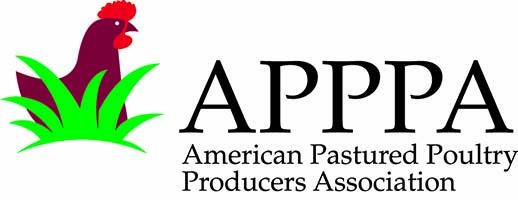Is Pastured Poultry Organic?No. Pastured poultry and organic certification describe different aspects of the poultry market. Pastured poultry describes a method of farming chickens, eggs, turkey, ducks, geese, and guineas. Certified organic is a marketing label managed by the USDA that requires annual certification to ensure producers "comply" with program rules; however, certified organic does not require pastured poultry principles. Pastured poultry embodies outdoor production on green vegetated pastures and frequent movement of the birds to fresh pasture. These two foundational principles are NOT found in 90% of the of the certified organic chicken, turkey, and eggs found in the marketplace today. When consumers see chickens, turkeys, ducks, or geese raised on pastured, they often call it organic. The reality, however, is that the organic confinement chicken and turkey houses look just like their non-organic confinement animal feeding operation (CAFO) counterparts. Outdoor access is a technical possibility in the CAFO organic model (often called industrial organics by critics), but most birds never see sunlight until they are loaded on a truck to go to the processing plant. The "outdoor access" in this setup is often small outdoor concrete runs or screened-in porches. These runs and porches remain inefficient and in violation of the organic's founding expectation as a process that continuously seeks to build and improve soil. Some pastured poultry producers may be certified organic, but, in general, pastured poultry farming practices exceed the minimum requirements of certified organic poultry. Beyond Organic You may hear many pastured poultry producers claim that they raise "beyond organic" chicken and eggs. This claim is meant to highlight the shortcomings of the national certification program--a program that enables large commercial chicken companies to raise certified organic poultry in a nearly identical way to the non-certified chicken, turkey, or eggs that you're trying to avoid. Pastured poultry is different. The common practices of pastured poultry farms exceed "industrial" certified organic poultry in terms of animal welfare, soil regeneration, and local economies. Buying certified organic poultry is not a bad thing, and if certification is important to you, find a local farm that is practicing the pastured poultry model in addition to being certified. Approximately 10% of pastured poultry flocks are certified organic. However, many small flock pastured poultry producers easily comply with the organic rules but opt not to certify because it too closely links them to a weakly enforced standard. The best way to ensure that your chicken, egg, turkey, duck, or goose products meet your expectations is buy direct from a local farm. Ask that farmer for a tour and establish a trusting relationship with them. By seeking out a locally available pastured-raised option, you get the taste and nutrition you expect while supporting farming that encourages high animal welfare, builds soil, stimulates local economies, and reconnects communities. Additional Readings APPPA Comments on National Organic Program: Organic Livestock and Poultry Practices Fake Organic in Imported Corn and Soybeans Fails to Deliver Customer and Farmer Expectations Scrambled Eggs: Separating Factory Farm Egg Production from Authentic Organic Agriculture. Available from Cornucopia Institute | Consumer Guide
Pastured Poultry DifferenceWith constant access to fresh pasture, pastured poultry is better for the chickens, the land, and the people. Pastured poultry:
Free Consumer NewsletterStay informed about buying, eating, and cooking pastured poultry. Let APPPA facilitate the farm to consumer pastured poultry relationship. Membership At a Glance
|
